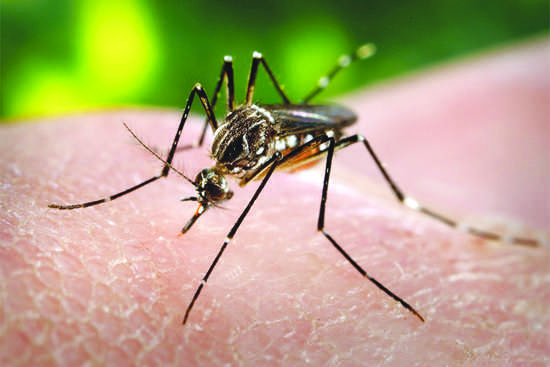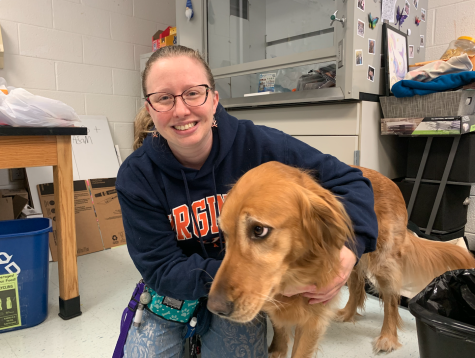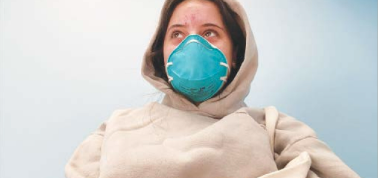Zika virus transmits concerns

A person can acquire the Zika virus from the bite of the Aedes aegypti and Aedes albopictus mosquito which also transmit Dengue fever
Mosquito season has yet to arrive in Virginia, however worries over the Zika virus have increased due to the first diagnosed case of the disease in the Commonwealth.
A woman from Harrisonburg tested positive for the Zika virus in late January after returning from a mission trip in Guatemala.
The previous is one of 39 countries that have reported locally transmitted cases of the virus according to the World Health Organization. News of the first case of Zika in Virginia has prompted health officials at the INOVA Alexandria Hospital to address the issue.
Flyers informing volunteers of the disease were seen around the hospital.
It is important to only trust reliable sources when dealing with the influx of information surrounding the Zika virus outbreak according to school public health nurse Shira Jorgensen who is available in the clinic twice a week.
“It is important to go to the experts to get your information,” Jorgensen said. “Fairfax County Health Department’s Communicable Disease Unit, the Virginia Department of health and the CDC are all reliable sources for obtaining information regarding Zika and other communicable diseases.”
Almost every day, students hear the words “Zika” and “virus” on the news. The latest developments regarding the mosquito transmitted illness has caused concern, not only amongst the student body, but also epidemiologists and public health officials worldwide.
According to the CDC, a total of 52 travel associated cases and zero locally acquired cases of the virus of the virus have been reported in the U.S. In other words, people who have been diagnosed with the Zika virus in the states contracted the disease abroad.
With a large Hispanic population in the student body, the Zika virus is a source of worry of students such as senior Guatemalan student Stephanie Bautista.
“The disease has a huge impact on Latin American countries,” Bautista said. “Unfortunately, these countries are not able to handle this disease properly.”
Hearing the same disease being repeated over and over again on the news sometimes is not a bad thing according to some students.
“I honestly believe that any type of health-related problem should be known so the media is a good way of spreading the issue,” senior Kim Mai said.
The prevalence of the disease is very minute in comparison to the Zika epidemic in Central and South America where an estimated 1.5 million cases have been reported in Brazil since the beginning of the outbreak in 2015 according to the WHO.
“I am confident that the cases of Zika that have occurred in the U.S. are being investigated and monitored,” Jorgensen said. Some students are skeptical if the Zika virus will have any direct impact on the U.S.
They feel that news coverage on disease outbreaks are often blown out of proportion.
“There have been past illnesses like Ebola and the media always over reacts. I am not concerned about an illness that is hundreds of miles away,” senior Lara Raid said.
To add more concerns over Zika, the WHO has found a correlation between the virus and a neurological condition called microcephaly involving newborns being born with below average brain and head sizes.
“It saddens me how a mosquito has the ability to cause birth defects in infants,” Bautista said.
Recently, it has been reported that the Zika can remain dormant in sperm and be transmitted sexually as well as through blood transfusions according to USA Today.
Despite these latest revelations, some students are not alarmed since severe disease impacts have yet to occur in the U.S.
“I don’t know if there’s much of a threat of the disease crossing into the United States en masse, but even so people should be aware,” senior Sacha Cameron said.
Even if the Zika virus has not manifested into an outbreak in the U.S. it is necessary to decipher between what is true, exaggerated and currently being investigated if severe circumstances arise.
“We all have a responsibility to stay informed about things that have the potential to impact us so that we can make good decisions,” Jorgensen said.

Phuong is a senior at AHS and this is his third year on staff. He was previously an Editorials Editor and Lifestyles Editor. You can find Phuong on the...













